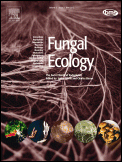
Fungal Ecology
metrics 2024
Unveiling the Ecological Significance of Fungi
Introduction
Fungal Ecology, published by Elsevier Science Ltd, is a leading international journal dedicated to the exploration and advancement of our understanding of fungal biology and its ecological significance. With an impressive impact factor and recognized in the second quartile (Q2) across various categories such as Ecological Modeling, Ecology, Ecology, Evolution, Behavior and Systematics, and Plant Science, this journal offers a critical platform for researchers and professionals to disseminate and discuss innovations in fungal ecology. Since its inception in 2008, the journal has built a solid reputation, particularly highlighted by its impressive Scopus rankings, including a top percentile status in ecological fields. Researchers are encouraged to submit their findings that contribute to the understanding of the ecological roles of fungi, their interactions within ecosystems, and their applications in environmental science. Although the journal does not offer open access, it remains a vital resource for academics and practitioners aiming to stay ahead in the rapidly evolving fields of fungal research and ecology. Located in the vibrant heart of the Netherlands, the journal continues to foster scholarly engagement and collaboration among scientists globally.
Metrics 2024
 0.67
0.67 1.90
1.90 2.90
2.90 73
73Metrics History
Rank 2024
Scopus
IF (Web Of Science)
JCI (Web Of Science)
Quartile History
Similar Journals
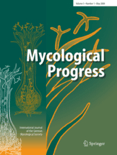
MYCOLOGICAL PROGRESS
Uncovering innovative insights in mycology and beyond.MYCOLOGICAL PROGRESS, published by SPRINGER HEIDELBERG, is an esteemed journal dedicated to advancing the field of mycology and associated biological disciplines. With an ISSN of 1617-416X and an E-ISSN of 1861-8952, this journal has established itself as a leading source of high-quality research, evidenced by its impressive rankings in the Q1 quartile across various categories such as Agricultural and Biological Sciences, Ecology, and Plant Science. As of 2023, MYCOLOGICAL PROGRESS ranks 37 out of 193 in Agricultural and Biological Sciences (miscellaneous) and 183 out of 721 in Ecology, demonstrating its significant impact in the ecosystem of scientific literature. This journal not only aims to disseminate innovative research findings but also strives to foster interdisciplinary collaboration among scientists, ecologists, and agriculturists around the globe. While retaining a traditional model of publication, MYCOLOGICAL PROGRESS remains crucial for those seeking to deepen their understanding of fungal biology and its broader environmental implications.

SYDOWIA
Illuminating Pathways in Ecology and EvolutionSYDOWIA is a prestigious academic journal based in Austria, published by Verlag Ferdinand Berger Sohne Gesellschaft mbH, that has been a cornerstone of scientific publishing since its establishment in 1996. With an ISSN of 0082-0598, SYDOWIA focuses on critical research in the fields of Ecology, Evolution, Behavior and Systematics as well as Plant Science, earning a notable classification in Category Quartiles with Q3 in Ecology-related disciplines and Q2 in Plant Science for 2023. The journal’s strategic insights into agricultural and biological sciences have secured a place within the Scopus rankings, where it holds the position of #191 out of 516 in Plant Science and #278 out of 721 in Ecology categories—reflecting its growing influence with a percentile standing of 63rd and 61st, respectively. Although SYDOWIA is not an Open Access journal, it continues to thrive in delivering scholarly articles that promote advancement and innovation in ecological and botanical research. Researchers, professionals, and students alike can rely on SYDOWIA as a vital resource for disseminating knowledge and fostering exploration in these essential scientific domains.

Journal of Fungi
Connecting Global Minds in Fungal ResearchJournal of Fungi is a premier open-access journal published by MDPI, dedicated to advancing the understanding of fungal biology in its myriad forms. Since its inception in 2015, it has become a vital resource in the fields of ecology, evolution, and plant sciences, attaining notable rankings in Scopus, including Q1 status in Ecology, Evolution, Behavior and Systematics, and Plant Science, with a Q2 ranking in Microbiology (medical). The journal fosters a collaborative platform for researchers, professionals, and students by providing unrestricted access to high-quality, peer-reviewed articles, which encourages the dissemination of innovative findings and methodologies relevant to fungal research. Designed to cater to a global audience, the Journal of Fungi has established its significance in the scientific community, especially from its base in Switzerland, where it continues to contribute to the ongoing discourse in mycology and beyond. With its commitment to open access since its launch and its continuous support for groundbreaking research, the journal plays a crucial role in driving forward the scientific inquiry and ecological awareness in fungal studies.
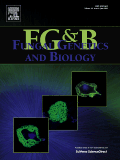
FUNGAL GENETICS AND BIOLOGY
Innovating Insights into Fungal GeneticsFungal Genetics and Biology is a leading peer-reviewed journal published by Academic Press Inc, Elsevier Science, dedicated to advancing the understanding of fungi through innovative genetic and biological research. Since its inception in 1996, this journal has served as a vital platform for the dissemination of critical findings in the fields of Genetics and Microbiology, maintaining a distinguished Q2 category ranking in both disciplines as of 2023. With an ISSN of 1087-1845 and an E-ISSN of 1096-0937, the journal emphasizes the intersection of genetics and molecular biology to explore fundamental questions related to fungal biology that are of paramount importance to various applications in biotechnology, medicine, and environmental science. Researchers, professionals, and students alike will find this journal invaluable as it not only covers current trends and breakthroughs but also encourages collaborative efforts across the scientific community. Fungal Genetics and Biology continues to shape the future of fungal research well into 2024 and beyond, offering rich insights and open access options for a global audience.
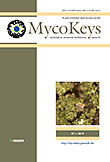
MycoKeys
Elevating fungal knowledge for global ecological health.MycoKeys, published by PENSOFT PUBLISHERS, is a leading open-access journal dedicated to advancing the understanding of fungal biology and its diverse implications within agricultural, ecological, and biological sciences. With its ISSN 1314-4057 and E-ISSN 1314-4049, this journal has achieved remarkable academic prestige, reflected in its 2023 Scopus rankings placing it in the first quartile (Q1) across several categories, including Agricultural and Biological Sciences (miscellaneous), Ecology, Evolution, Behavior and Systematics, and Plant Science. MycoKeys provides a platform for researchers, professionals, and students interested in the latest findings and methodologies regarding fungi, their environments, and their interactions within various ecosystems. Since its transition to open access in 2011, the journal has championed the dissemination of high-quality research to a global audience, fostering collaboration and innovation in mycology. With a publishing history that converges from 2015 to 2024, MycoKeys remains a vital resource for those committed to exploring the multifaceted roles fungi play in our world.
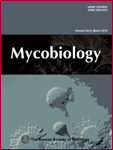
MYCOBIOLOGY
Fostering Collaboration in the World of MycologyMYCOBIOLOGY is an esteemed open-access journal published by Taylor & Francis Ltd, specializing in the fields of Infectious Diseases, Microbiology, and Plant Science. Since its inception, the journal has provided a platform for innovative research, showcasing a diverse range of studies that delve into the complexities of mycology and its vast implications on health, agriculture, and the environment. With a commendable impact factor and a Q2 ranking in Plant Science as of 2023, MYCOBIOLOGY facilitates the dissemination of vital findings to a global audience of researchers, professionals, and students. In addition to its commitment to high-quality content, MYCOBIOLOGY has embraced open access since 2018, ensuring that the latest advancements in mycological research are readily available to the academic community and the public. By bridging gaps in knowledge and fostering collaboration across disciplines, MYCOBIOLOGY plays a crucial role in advancing our understanding of fungal biology and its myriad applications.
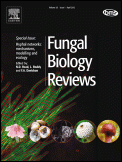
Fungal Biology Reviews
Bridging Research and Innovation in MycologyFungal Biology Reviews is a premier academic journal published by Elsevier Science Ltd, focusing on the rapidly evolving field of fungal biology. With an ISSN of 1749-4613 and an E-ISSN of 1878-0253, this journal has established itself as a leading resource for researchers, academics, and professionals dedicated to advancing our understanding of fungi and their ecological, agricultural, and medical implications. As a testament to its impact and quality, Fungal Biology Reviews holds a distinguished Q1 classification in both Microbiology and Plant Science categories for 2023, with a notable rank of 26 out of 182 in the Microbiology category. The journal uniquely blends comprehensive reviews that synthesize current research findings with forward-looking perspectives that pave the way for future studies, making it indispensable for anyone involved in fungal research. Although it operates under a traditional access model, its commitment to fostering impactful scholarship ensures that it remains relevant and widely cited within the academic community. Spanning from its inception in 2007 through to its projected conclusion in 2024, Fungal Biology Reviews continues to shape the framework for future discoveries in fungal biology.

MICROBIAL ECOLOGY
Pioneering research at the intersection of ecology and microbiology.MICROBIAL ECOLOGY, published by Springer, is a premier journal dedicated to advancing the field of microbial ecology, illuminating the intricate relationships between microorganisms and their environments. Established in 1974, the journal reflects a strong historical commitment to disseminating high-quality research, with its current scope encompassing groundbreaking studies that explore microbial dynamics in various ecosystems. In the 2023 rankings, it has secured a prestigious position in Q1 across multiple categories, including Ecology, Evolution, Behavior and Systematics, and Soil Science, indicating its influential contribution to scientific literature. While it does not offer Open Access, the journal remains highly accessible to researchers and professionals via institutional subscriptions. With an impressive Scopus ranking across significant ecological categories, it serves as an essential resource for academics looking to deepen their understanding of microbial interactions and ecological processes, thereby facilitating innovative research and practical applications in environmental science.
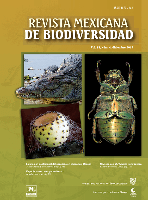
Revista Mexicana de Biodiversidad
Pioneering Research for a Greener TomorrowRevista Mexicana de Biodiversidad is a prominent academic journal dedicated to the field of biodiversity and conservation, published by the prestigious Instituto de Biología, Universidad Nacional Autónoma de México. Since its inception as an Open Access publication in 2005, it has aimed to disseminate high-quality research that advances the understanding of biological diversity in Mexico and beyond. With an ISSN of 1870-3453 and an E-ISSN of 2007-8706, the journal caters to a diverse audience, including researchers, professionals, and students, by providing vital insights into ecological studies, conservation strategies, and the sustainable management of natural resources. The journal is committed to fostering scientific collaboration and promoting the significance of biodiversity in addressing contemporary environmental challenges. By publishing innovative and impactful research, the Revista Mexicana de Biodiversidad plays an essential role in the global discourse on biodiversity conservation.

Mycosphere
Empowering the global mycology community with open access.Mycosphere is a premier open-access journal published by MYCOSPHERE PRESS, dedicated to advancing the field of mycology and contributing significant insights into ecological and plant sciences. Established in 2010 and headquartered in Guiyang, China, this journal has carved out a vital niche, achieving remarkable rankings in the Scopus database—#3 in Ecology, Evolution, Behavior and Systematics and #4 in Plant Science, both boasting a 99th percentile ranking. With an unwavering commitment to disseminating high-quality research, Mycosphere serves as a critical platform for researchers, professionals, and students alike, encouraging robust dialogue and collaborations across the global scientific community. The journal's accessibility, coupled with its impact factor and Q1 categorizations in 2023 for both ecology and plant sciences, substantiate its role as an essential resource for cutting-edge studies and innovations in the field.